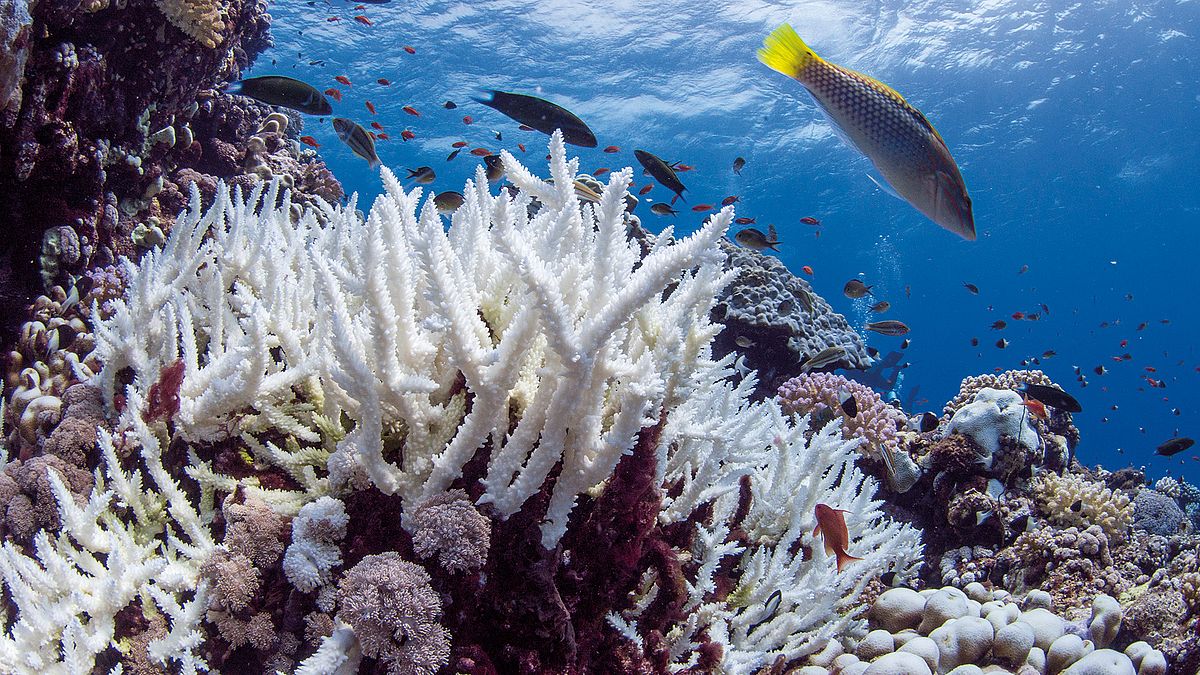
Ocean Warming
The temperature of seawater is rising, not only at the surface but also already in deeper layers. The absolute amount is lower than in the atmosphere, but because of the high thermal capacity and the water mass, the additional amount of stored heat is enormous. More than 90 percent of the additional heat released is stored in the ocean. On the other hand, this also means for future developments that the response of the climate system to a reduction in greenhouse gas emissions is greatly slowed down by the ocean.
A warmer ocean can lead to more evaporation – moisture that returns in the form of precipitation. Higher water temperatures in the tropics also support the development of strong cyclones (hurricanes, typhoons, cyclones) and increase their lifetime as they move polewards. This also increases the regions affected by such extreme events.
In addition, warming reduces the mixing of water layers and thus the supply of marine life with oxygen and nutrients. Because of the thermal expansion of sea water, ocean warming also contributes to sea level rise.


